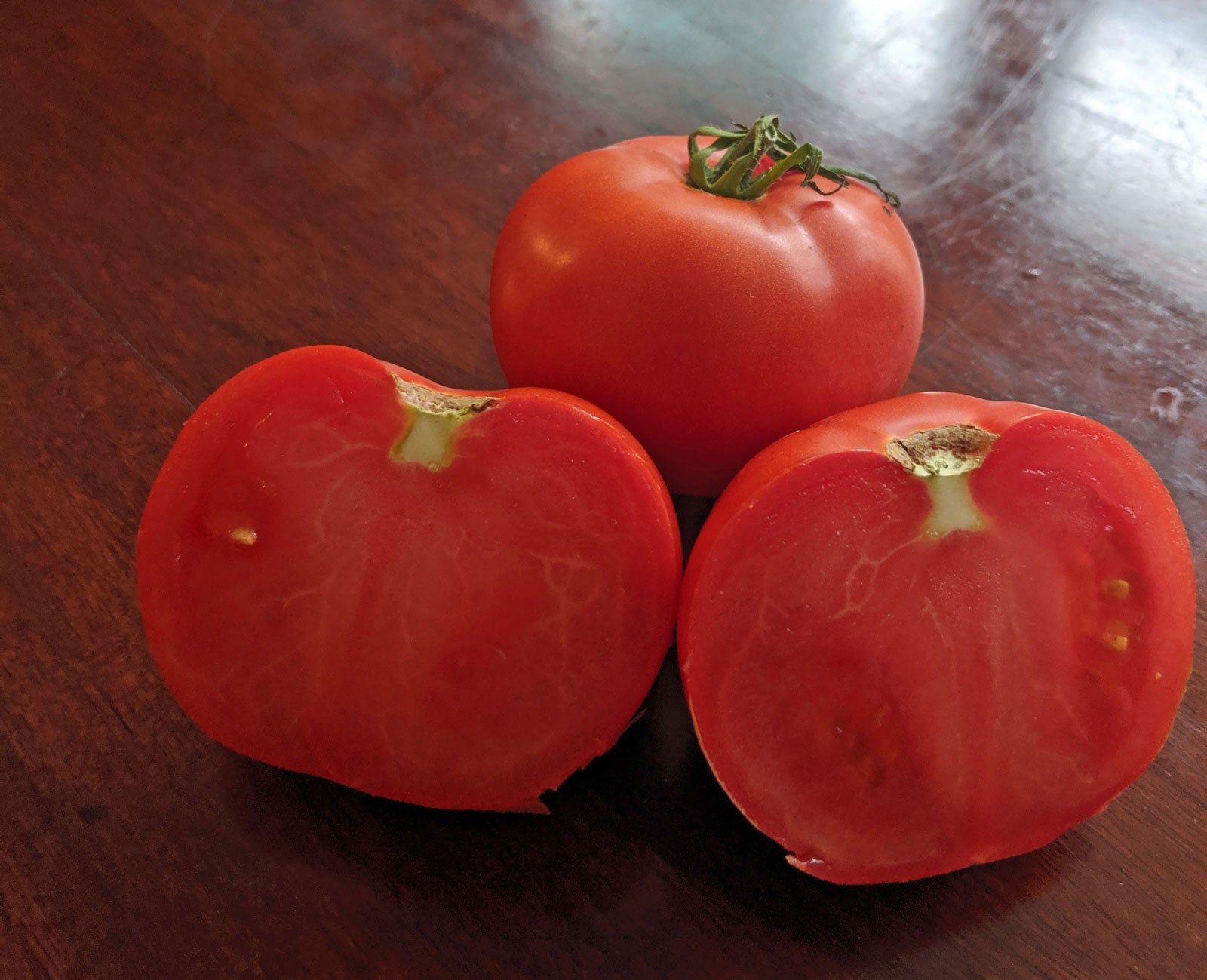
Love a good tomato sandwich? Then try growing Champion tomatoes. The following article contains information on Champion tomato care and Champion tomato uses once harvested from the garden.
What is a Champion Tomato?
Champion tomatoes are an indeterminate or ‘vining’ type of tomato plant. The fruit is sweet and meaty and predominantly seed-free. Tomatoes are large and early, earlier than ‘Better Boy.’ A hybrid, Champion tomato plants can be grown in USDA zones 3 and warmer and is especially suited for the warm southern regions, as they tolerate both heat and dry conditions. And if that isn’t enough of a recommendation, Champion tomatoes are resistant to verticillium wilt, fusarium wilt, nematodes, tobacco mosaic virus, and yellow leaf curl virus.
How to Grow a Champion Tomato Plant
Sow seeds in the spring after all danger of frost has passed in your area in well-draining, fertile soil in an area of full sun. Space the seeds about 2 feet (60 cm.) apart. Seeds will germinate in 7-21 days. Keep the seedlings moist but not drenched. Plants will grow 4-8 feet (1.2 to 2.4 m.) in height or even taller which means some type of trellis or support system should be provided. Feed the tomato plants with a 4-6-8 fertilizer. Monitor for any signs of pest or disease. Provide the plants with one inch (2.5 cm) of water per week depending upon weather conditions.
Champion Tomato Uses
One of Champion tomato’s primary uses is for a good thick meaty tomato sandwich. Really, that was what the developers had in mind when they created this beefy tomato. Champion tomatoes are excellent fresh sliced or in salads but are equally delicious cooked or canned.
Sign up for the Gardening Know How newsletter today and receive a free copy of our e-book "How to Grow Delicious Tomatoes".

Amy Grant has been gardening for 30 years and writing for 15. A professional chef and caterer, Amy's area of expertise is culinary gardening.
